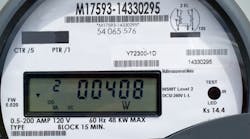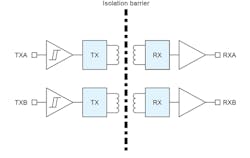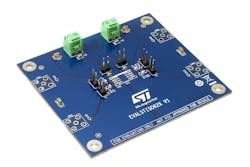This article is part of TechXchange: Exploring Digital Isolator Technology
In many design situations, it’s the small, single-function devices that can overcome system challenges and weak spots by eliminating subsystem-interface concerns. Such is often the case with analog- and digital-signal isolators, needed to relieve designers of worrying about the many consequences of these unavoidable signal-path conflicts, which can include poor performance, conflicting grounds/commons, and even basic safety issues.
The well-known solution is to employ galvanic (ohmic) isolation, which enables signal information to pass but with no actual electrical path. Although optocouplers are often used for this function, they’re not the only option, especially for isolation of digital signals.
Recognizing the need, STMicroelectronics extended its family of dual-channel high-speed digital isolators with the STISO620 for logic-level signals to 5 V. The IC contains two channels with common “directionality,” with its digital inputs on one side of the isolation barrier and digital outputs on the other side (Fig. 1). Combined with its SO8N narrow-body packager, this results in a simplified board layout and reduced overall footprint.
Built to maintain insulation integrity during system faults and with inevitable aging, these isolators enhance reliability in industrial and consumer applications for enhanced long-term performance. And they can be used nearly anywhere in place of optocouplers.
Applications include smart-grid equipment, utility meters, motor drives, smart building and lighting systems, and domestic appliances, as well as power supplies, inverters, fieldbus isolators, and battery monitors. As with previous members of this family, the STISO620 devices are based on ST’s 6-kV thick-oxide technology that ensures robust galvanic-isolation performance.
The STISO620 operates from a supply rail between 3 and 5 V and includes Schmitt-trigger inputs for high noise immunity. Dynamic performance includes 100-Mb/s switching speed and pulse delay of less than 3 ns.
Despite their narrow-body package, these devices provide 4-mm creepage and clearance, contributing to their ability to withstand 4,000 Vpeak impulse voltage (VIOTM) with 2,830 Vrms isolation voltage (VISO) and 849 Vrms maximum working isolation voltage (VIOWM). These key isolation parameters are tested in accordance with VDE0884-10 and UL 1577 safety standards; all of the isolators are UL 1577-certified.
The STISO620 is in production now, priced from $0.93 for orders of 1,000 pieces. A 20-page datasheet provides detailed specifications. Additional design-in support comes via the EVALSTISO62XV1 evaluation board (Fig. 2), assisting designers in assessing this IC in their applications. The datasheet for this board, which is priced at $40.76, includes its schematic diagram and detailed bill of materials (BOM).
Read more articles in TechXchange: Exploring Digital Isolator Technology


